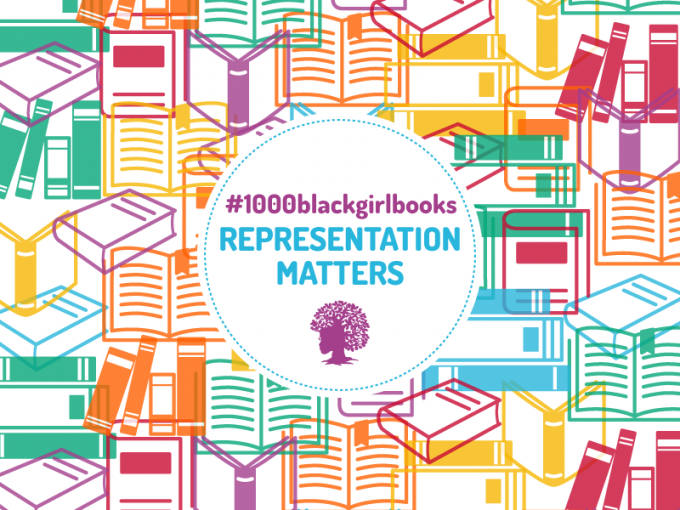Representation Matters – #1000BlackGirlBooks
Representation Matters
Book reading is an essential component of cognitive and social development for children and adolescents. Reading a lot is associated with things that might be expected, such as larger vocabularies, better comprehension, and stronger writing ability. But reading also opens up the world to the reader, increasing children’s knowledge about how things work, the history of the world, and the nature of social relationships. Reading helps students to focus for longer periods of time and to persist in other academic tasks. In short, reading is a fundamental skill–a building block of other important processes.
Representation of girls in children’s books has increased dramatically since the 1970s, but we still have a long way to go. A recent study of 200 award winning and bestselling children’s books found that nearly twice as many title and main characters were boys than girls (Hamilton et al., 2006). Even adult characters in children’s books were likely to be men. African American characters are even more under-represented in children’s literature (Thomas, 2011). Extending these lines of research suggests that books with African American girls as main characters are especially rare.
Representation in books matters since children are more interested in books that include characters who look like them or who share common experiences. The absence of girls of color in books effectively silences their lives and renders them invisible. Books also provide a window into the lives of others with different experiences, validate the relevance of others’ cultural experiences, and may act as a bridge between cultural groups (Botelho & Rudman, 2009). Therefore, the under-representation of girls of color in books is not only a disservice to the girls themselves but also to others who have fewer opportunities to connect with their stories.
Books can also teach important cultural lessons and instill pride and connectedness with self-relevant groups. Along with exposure to African-themed artifacts and African American art, Margaret Caughy (2001) considers the presence of books on African Americans to be an aspect of racial socialization. Her research finds that an increased presence of such objects in the home leads to improved academic achievement. Other research suggests that objects like African American books lay the foundation for a positive racial identity, including pride in the African American experience and feelings of connection to the group. Consequently, healthy racial identity relates to improved self-esteem, academic achievement, and psychological well-being.
Increasing representation of African American girls in children’s books cannot be the only objective. In fact, this body of research shows that African Americans and girls continue to be portrayed in stereotypical ways. Women tend to have traditionally feminine careers and are not often portrayed as strong or heroic. Girls are not often agents in their own development; the campaign for #1000BlackGirlBooks is a clear step in changing this landscape.
Dr. Stephanie Rowley
Department of Education
Department of Psychology
University of Michigan

